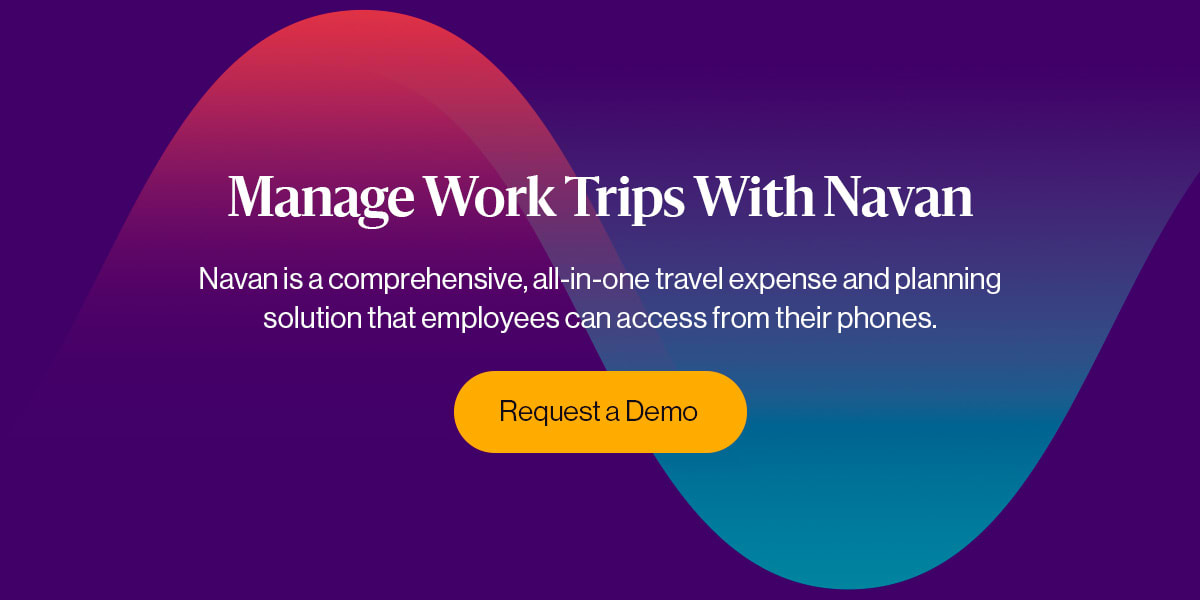Executive Assistant Responsibilities: Supporting Business Success

Executives may face big decisions and tight schedules, but behind the scenes, there’s someone helping to make it all happen smoothly. Executive assistants are the backstage heroes who manage schedules, coordinate travel, and handle the countless details that keep operations humming along.
Here’s a closer look at the responsibilities of an executive assistant.
What Is an Executive Assistant?
Executive assistants (EAs) are the right hands of high-level executives, managing essential tasks that keep leadership focused on strategic priorities. Unlike administrative assistants, who primarily handle clerical duties, EAs take on a broader role, acting as gatekeepers, project managers, and strategic partners in business operations.
Core Responsibilities of an Executive Assistant
EAs juggle multiple responsibilities to help keep executives organized and efficient:
Calendar Management
Time is an executive’s most valuable asset, so a well-managed calendar is the backbone of productivity. Executive assistants filter out distractions first, prioritizing high-impact engagements and keeping appointments aligned with strategic goals. Using advanced scheduling tools, they coordinate across time zones, anticipate conflicts, and streamline meeting logistics.
Communication Liaison: The Executive’s Trusted Voice
As the primary gatekeepers, EAs manage correspondence, relay critical information, and draft professional communications. Whether responding to stakeholders, handling internal updates, or preparing executive briefings, EAs help ensure that communication is clear, professional, and aligned with business goals. Their discretion and ability to manage sensitive information make them indispensable in maintaining the executive’s professional image and organizational alignment.
Travel Coordination: Crafting Seamless Business Journeys
Business travel often keeps executives on the move, so executive assistants must craft a seamless travel experience from start to finish. EAs handle every detail, from securing last-minute reservations to adapting plans when disruptions arise.
They may also navigate visa requirements, expense policies, and local logistics, create smooth transitions between meetings, and minimize downtime. By anticipating travel challenges before they emerge, EAs help make business trips as effortless as possible for executives, allowing them to focus on larger issues.
Mastering Meetings
One of the key responsibilities of an executive assistant is to save time keeping everyone on track. Here’s how they get it right:
- Meeting prep: Executive assistants help set clear agendas by gathering essential reports and coordinating with attendees so everyone is aligned and ready for productive discussions.
- During the meeting: EAs take minutes, capture action items, and track deliverables to maintain momentum.
- After the meeting: Follow-ups are key to progress. EAs track action items, meet deliverables, and help turn meeting outcomes into concrete results.
Document Management
From presentations to financial reports, EAs handle the documents that fuel executive decision-making. They organize and maintain records, draft critical documents, and refine presentations to reflect the executive’s vision. EAs streamline information flow so executives have everything they need exactly when they need it.
Advanced Duties of Executive Assistants
The role of an executive assistant (EA) has evolved beyond traditional administrative support — these professionals are key contributors to a business’s success. Today’s EAs actively manage projects, track budgets, and provide strategic support that helps executives operate at peak efficiency. Their ability to juggle these high-level responsibilities makes them indispensable in modern organizations.
Project Management
EAs are increasingly responsible for overseeing projects that keep businesses running smoothly. They manage timelines, coordinate stakeholders, and track deliverables to keep initiatives on course. By taking the lead on project execution, they free up executives to focus on strategy.
Supporting Financial Oversight
Executive assistants are crucial in financial management and help executives maintain control over budgets and spend. Here’s how they do it:
- Budget planning and expense monitoring: EAs assist in creating budgets, tracking expenses, and maintaining financial compliance.
- Financial data analysis: They review spending patterns and provide insights to help executives make informed resource allocation decisions.
- Cost-saving recommendations: By identifying inefficiencies, EAs suggest strategies to optimize spending.
- Collaboration with finance teams: They work closely with financial departments to maintain budget integrity and accurate reporting.
- Transparent financial reporting: Clearly document every expense to improve accountability and alignment with business goals.
With Navan, EAs Can Have It All
Budgets, expenses, and reports — handled. Navan Expense takes the busywork out of financial management, giving executive assistants a seamless, supercharged way to track spending, spot trends, and keep everything audit-ready. Simple to use, easy to integrate, and built to save time, it’s the sidekick every EA needs.
Strategic Support: Acting as a Business Partner
A key strength of effective EAs is setting priorities for executives. By acting as a bridge between leadership and teams, they can help keep initiatives on track, optimize workflows, and handle confidential matters. By streamlining operations and serving as a contact point for stakeholders, EAs can boost everyone’s productivity and help ensure everything runs smoothly.
The Evolving Role of the Executive Assistant
The days of limiting executive assistants to scheduling and administrative tasks are long gone. Today, they are project managers, budget analysts, and strategic advisors rolled into one. Their ability to take on these advanced responsibilities makes them invaluable assets, helping organizations run more efficiently and making a direct impact on business success.
As the corporate landscape continues to shift, the role of the EA will only grow in importance.
Checklist: Key Skills to Look For in an Executive Assistant
When hiring an executive assistant, focus on these essential skills to help bring on a true partner for success:
__ Can they keep your schedule in order?
__ Do they prioritize tasks and meet deadlines without breaking a sweat?
__ Are they skilled at managing multiple projects efficiently?
__ Are they clear, concise, and professional in their correspondence?
__ Do they act as a reliable voice for the executive, conveying all vital information?
__ How quickly do they adapt to unexpected changes?
__ Can they tackle challenges proactively and keep things moving smoothly, even in stressful situations?
__ Are they comfortable with productivity tools, scheduling software, and business apps?
__ Can they leverage technology to streamline processes and boost efficiency?
How Executive Assistants Supercharge Business Success
Executive assistants (EAs) have leveled up from administrative support to key strategic players. They don’t just keep the wheels turning — they drive the engine. Here’s how:
Boosting Executive Productivity
EAs are the time-savers every busy executive needs. Managing schedules, travel, and correspondence allows executives to focus on strategy, innovation, and networking.
Fueling Strategic Decisions
EAs are more than just task managers — they’re data ninjas. By gathering key insights, preparing reports, and analyzing trends, they arm executives with the knowledge to make bold, informed decisions. Whether supporting a business pivot or shaping long-term strategy, EAs have the inside track to guide success.
Streamlining Operations Like a Pro
EAs are the ultimate productivity hackers. They streamline workflows, automate tasks, and keep things running smoothly. Due to their work managing logistics and juggling priorities, executives can spend less time on routine tasks and more time on big-picture goals.
Mastering Communication and Collaboration
Communication is an EA’s superpower. As the liaison between executives and teams, EAs help keep everyone on the same page and working toward shared goals. By managing relationships and organizing meetings, EAs make collaboration more efficient and effective.
Driving Business Growth
By managing projects, anticipating needs, and reducing roadblocks, EAs help the business move forward without unnecessary delays. Their proactive mindsets and knack for optimizing operations help fuel a business’s expansion and success.
Meet Navan
Executive assistants handle many responsibilities, especially when it comes to travel management. Navan simplifies the process by offering an all-in-one platform for booking, tracking, and optimizing business travel. Navan helps executive assistants focus on what matters most: supporting leadership and driving efficiency with time-saving automation, expense management tools, and access to exclusive rates.
The Power of Executive Assistants
Executive assistants’ responsibilities go far beyond scheduling and inbox management. They’re the glue that holds leadership together — the strategic partners who anticipate needs, solve problems, and keep everything running smoothly. From travel coordination to budget oversight, their effect is felt at every level of the business.
With the right EA, executives can focus on what they do best: make key decisions, drive innovation, and lead with confidence, while every logistic detail is in expert hands.
Ready to discover the problem-solving software that helps executive assistants and teams streamline operations? Unlock smooth travel and expense management with Navan.
This content is for informational purposes only. It doesn't necessarily reflect the views of Navan and should not be construed as legal, tax, benefits, financial, accounting, or other advice. If you need specific advice for your business, please consult with an expert, as rules and regulations change regularly.
More content you might like
Take Travel and Expense Further with Navan
Move faster, stay compliant, and save smarter.

